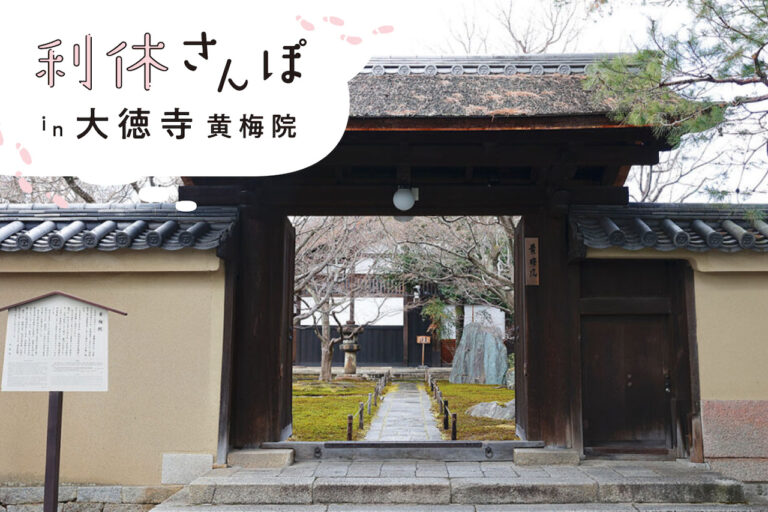
Daitokuji's [Oubai-in] with a dry landscape garden created by Sen no Rikyu...
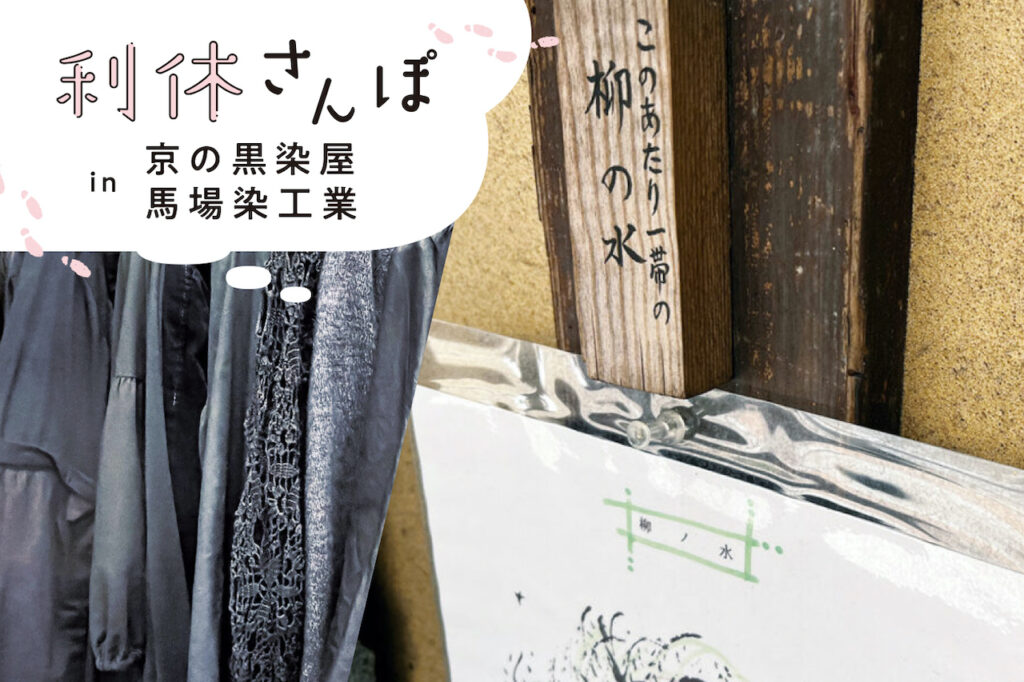

Founded in 1870, Baba Dyeing Industry specializes in dyeing. It is said that Sen no Rikyu used the clear spring water for tea ceremony in the late Heian period (794-1185). Baba Dyeing Industry, which has continued to use the "willow water" for dyeing, has opened up the famous water so that anyone can take it home. The history of "willow water," which is still turned on by people in Kyoto who are particular about their food, will be introduced.
Sen no Rikyu, known as the "tea saint," was born into a merchant family in Sakai in 1522. He inherited "wabicha" (tea ceremony) from Takeno Shaowo, and developed the unique Japanese tea ceremony to a great extent during the Momoyama period. Rikyu was active in politics as a tea master (a profession specializing in serving tea) for Oda Nobunaga and Toyotomi Hideyoshi, who used the tea ceremony at that time. His descendants continue as the Sanzenke, a family of tea masters, and have had a significant influence on the modern tea ceremony.
People walking along the pathway in the premises of Baba Dyeing Industry, which stretches eastward from Nishinotoin Dori, are carrying polyethylene tanks and plastic bottles in their hands. What visitors are looking for is "willow water," which is pumped up from about 90 meters underground. It is said that Sen no Rikyu used this famous water for the tea ceremony, and that willow trees were planted to protect the water from the sun. In the Azuchi-Momoyama period (1573-1600), the area is said to have been the residence of Nobuo Nobunaga, the son of Nobunaga Oda. The area's connection with the Honnoji Incident has led one to imagine that "willow water" may have been used for the tea ceremony held by Oda Nobunaga on the day before the Incident.
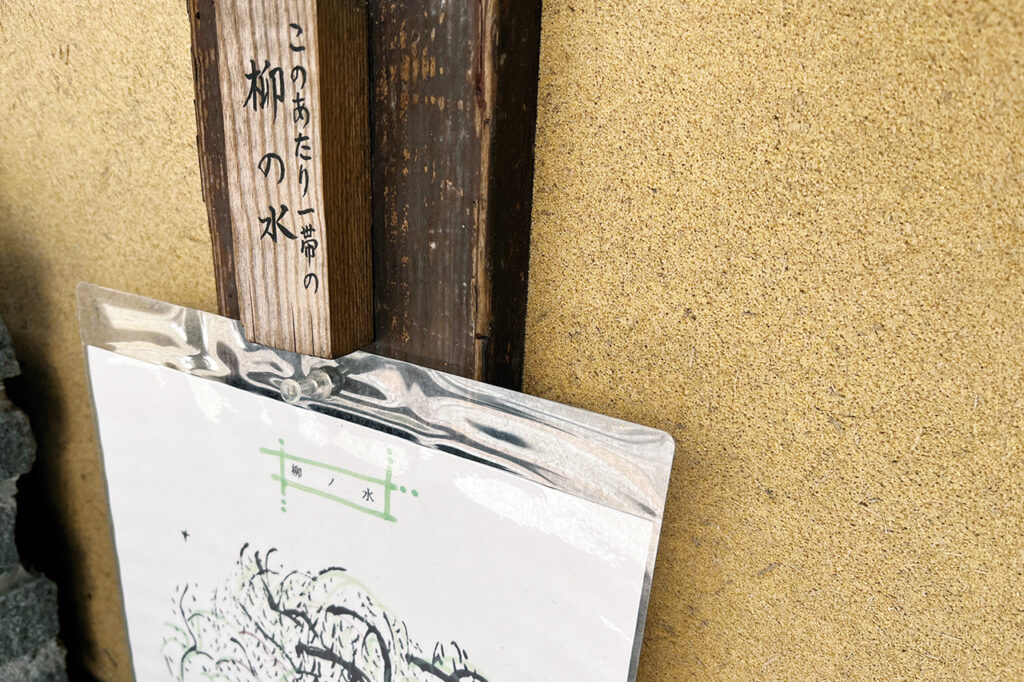

Japanese food chefs, pizzeria owners, coffee shop masters, and tea masters who come to prepare for tea ceremonies are just a few of the many people who turn on the "Yanagi no mizu" tap. The "willow water" favored by Sen no Rikyu is still used today to quench the thirst and hearts of Kyotoites who are particular about their food.
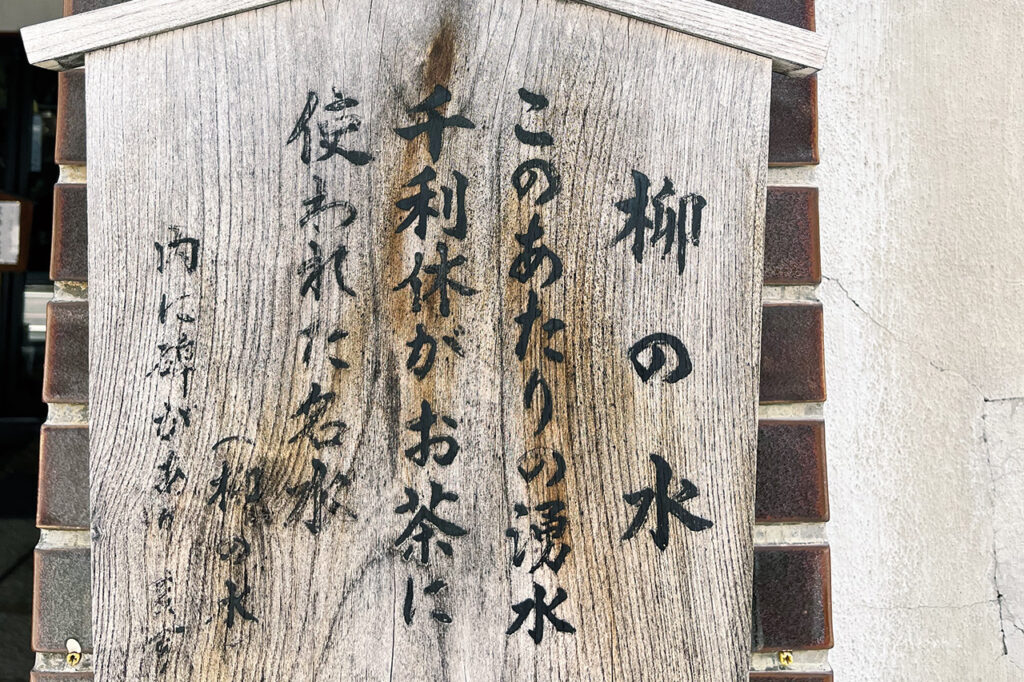

When we had an expert check the quality of the water, he found that 'willow water' contained trace amounts of iron. Thanks to the iron content, the tea has a mellow taste," said Maki Baba, representative of Baba Dyeing Industry.
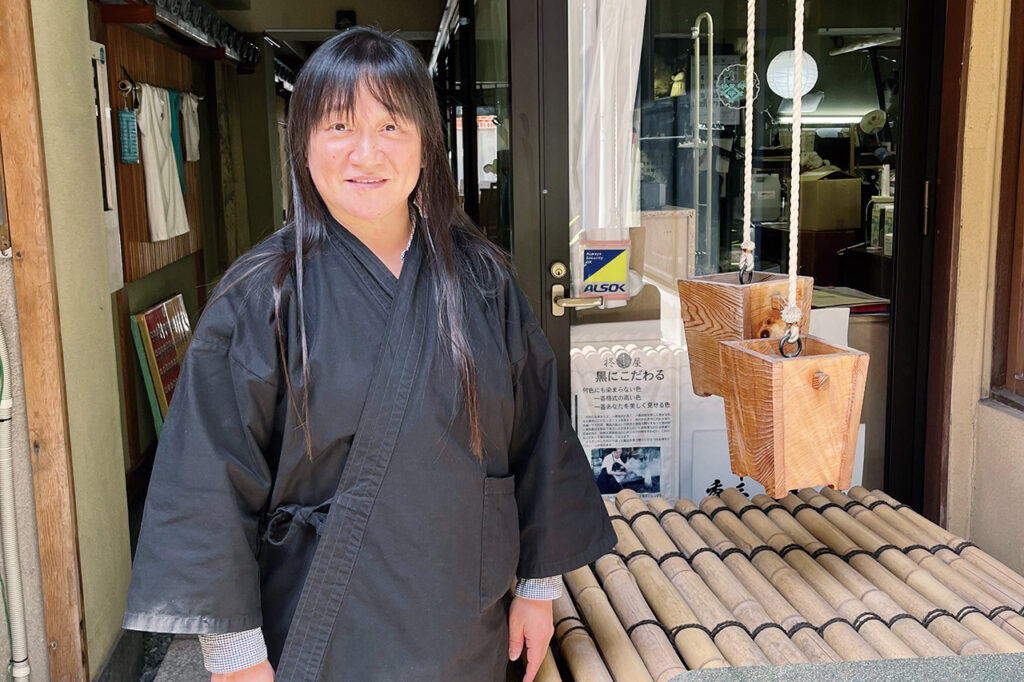

Baba Dyeing Industry has been using "willow water" for dyeing and drinking. The company was founded more than 150 years ago in 1801. Immediately after the end of the Edo shogunate and the birth of the modern nation, the situation in Kyoto changed drastically. Many craftsmen moved into the city, and black-dyed kimonos, which had once been a noble garment, became commonplace.
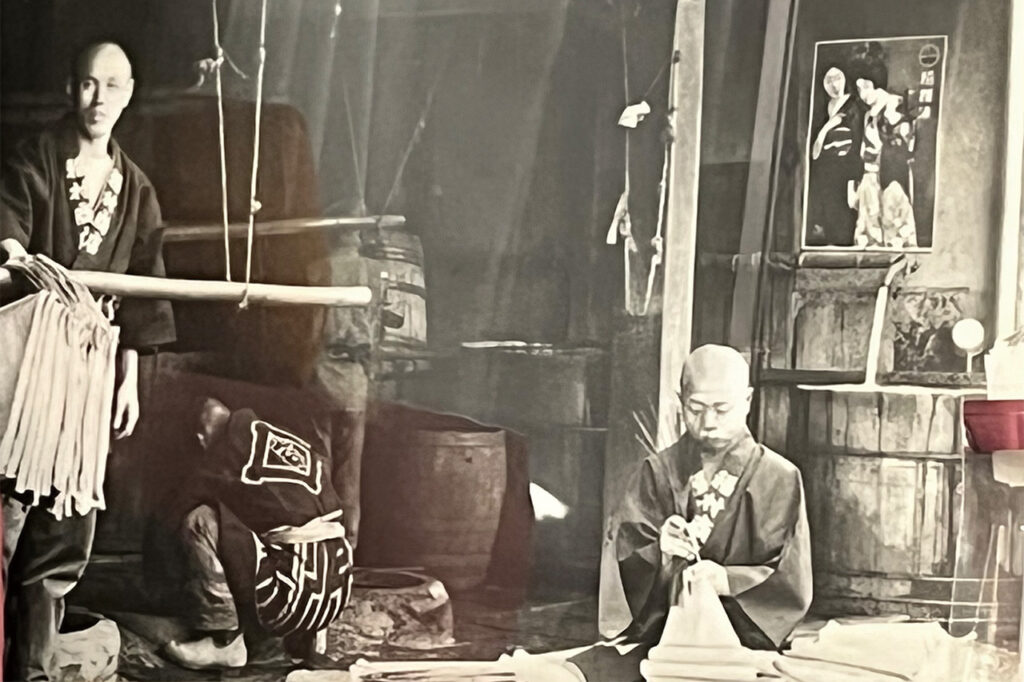

In the 1970s, it became customary for the bride-to-be to wear a kuromonzuke (black kimono) as a wedding present, and in the 1980s, when the economy was booming, there were about 130 kuromonzuke dyeing and dyeing establishments in the area. In the 1980s, when the economy was booming, there were about 130 black dyeing factories. Yanagi no mizu" is freely available to anyone during business hours. The amount of water you can take home is up to you, but the rule is to put 20 yen per liter in a box by the faucet. The water soaks into your body and is the best reward during a walk.
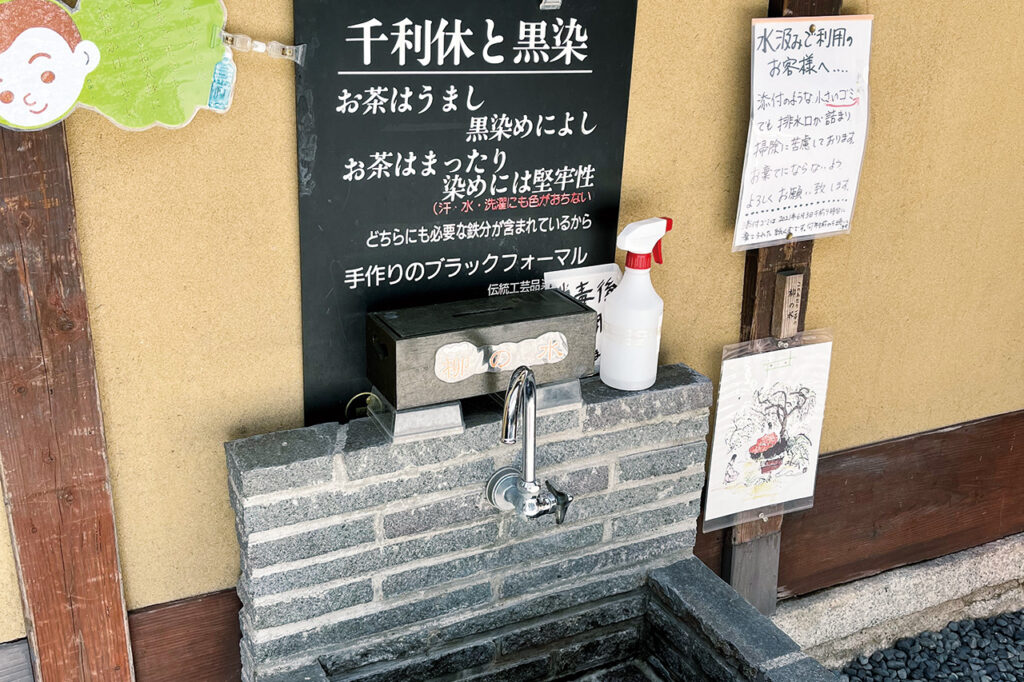

Founded in 1870 in Yanagisui-cho. The first generation developed brown dyeing, the origin of black dyeing, the second generation developed indigo dyeing, the third generation developed black dyeing, and the fourth generation developed black dyeing, which is acclaimed as the blackest dyeing anywhere. Currently, the fifth generation, Maki Baba, is taking over the workshop and developing new businesses such as dyeing clothes. The yuzen experience of dyeing an original flower pattern on a birthday for 1,650 yen and up is also popular.
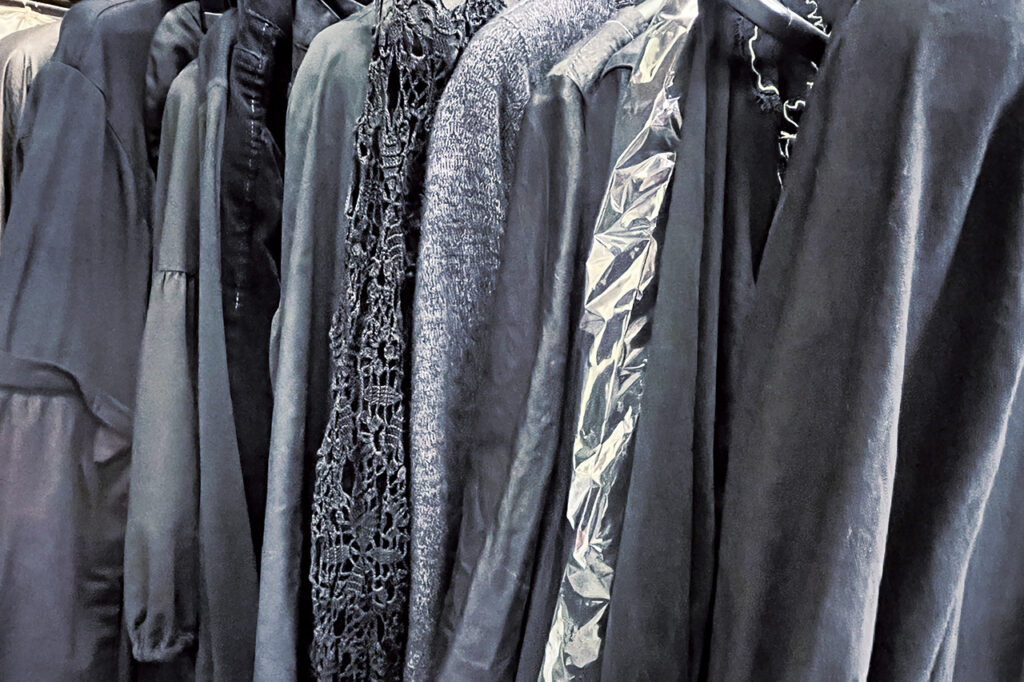

Over 600 interviews per year! An order site carefully selected by the editors who knows Kyoto and Shiga.
nowOfficial LINE friend registration500 yen OFF coupon is being issued!
Distributed every Friday morning at 8:00 am! From new restaurant information to event information that we want to share with you, We deliver articles about Kyoto that are useful to know. About 20,000 people have registered.Click here to add a friend!
 News
News Feature article
Feature article Featured event
Featured event